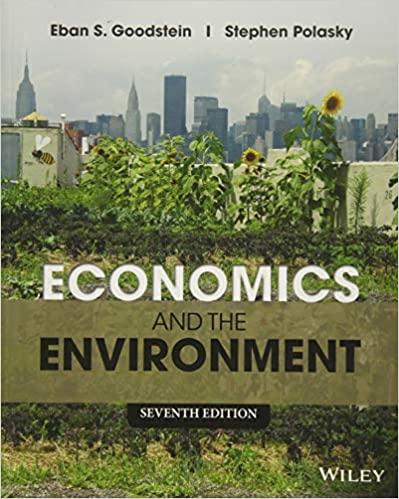In the past, the United States has imposed a ban on the export of unprocessed logs from
Question:
In the past, the United States has imposed a ban on the export of unprocessed logs from public lands in the Pacific Northwest, with the purported intent of slowing down deforestation of the spotted owl ecosystem. Japan objected to the ban, arguing that it is a “thinly disguised nontariff barrier” to trade. “The ban does not meet the environmental objective, since it does not apply to processed wood products. [Rather]
it will raise the price of unprocessed wood to Japan (the U.S. is the largest timber supplier to Japan) and encourage ailing U.S. wood processing industries.”29
From the U.S. perspective, of course, aiding our wood-processing industries might seem like a good idea, particularly if the burden of higher prices is borne by a principal competitor. The danger, of course, is that this kind of action might prompt retaliation by the Japanese in the form of trade restrictions on U.S. products.
To sort out whether environmentally motivated regulations or product standards are genuine, or are instead thinly disguised trade barriers, consider the following suggestion: Standards or regulations must not only meet the environmental objective but also do so in a least-cost way.
1. Do you think the Japanese objection, as stated, is correct?
2. Do you think the ban is an environmental measure or a trade barrier?
3. If a regulation or product standard does not meet the environmental objective in a least-cost way, then we may be justified in assuming it to be a trade barrier.
Do you agree?
Step by Step Answer:

Economics And The Environment
ISBN: 9781118539729
7th Edition
Authors: Eban S. Goodstein, Stephen Polasky





